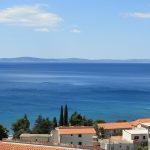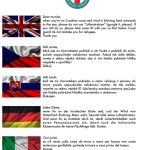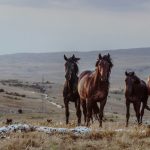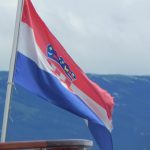In search of information to solve a 19th century mystery on the island of Brac.
The TCN inbox is varied, and we receive many emails regarding diaspora questions on ancestors. None have been so engaging as this one, received on January 30, 2016, from a descendant of one Anthony Vrsalovic, believed to have been born on the island of Brac in 1860. An appeal for information in exchange for an incredible story.
The story so far
A few months ago, I appealed for help in finding information about an ancestor of ours, Anthony Vrsalovic. We knew little about this man’s early life, except that he had told his children that he “had been born in Yugoslavia in 1860, had run away to sea as a boy and had settled in Rangoon.” It wasn’t much to go on! Yet, as his story has unfolded, it has turned out to be an extraordinary tale.
Family rumours also told how, one day, word reached Anthony in Rangoon that it would be dangerous for him to return home because his father had been imprisoned, accused of being involved in a political assassination attempt. So, Anthony stayed put, in modern-day Yangon. He was a stevedore, and a hard worker, eventually owning several ships of his own, becoming a successful businessman and a freemason to boot. His children and grandchildren remembered him as a kind, intelligent and generous man.
I always knew that family stories such as this were usually grounded in truth but had probably been modified over time with the constant telling and retelling of the same tale. But the search for Anthony seemed like looking for a needle in a haystack.
From his surname, Vrsalovic, we deduced that Anthony was likely to be a Croat and a Roman Catholic. We discovered that there is a concentration of that surname on the island of Brac and its surrounding areas. Luckily, the name is quite rare today, with only about 80 families in the whole of Croatia. I received only one response to the original appeal in The Dubrovnik Times. It was from a lady in Dubrovnik, Ozana Starcic, whose grandmother had been a Vrsalovic living in Postera. “Look no further than Brac“, Ozana advised me during one of several chats on the phone. I felt heartened. Perhaps I was not attempting a mission impossible after all. But there were many hurdles to overcome. I was not able to research the public records for myself, since I could not understand the language – and scanning page after page of handwritten documents is difficult, even when a language is familiar enough to allow quick scanning. I had to find help.
I managed to secure the services of a local genealogist, Lidija Sambunjac, to help me. Lidija did a fantastic job and eventually found treasure.
It took weeks to look at the records of every Parish on Brac. But in the records of Povlje, the very last parish to be searched, Anthony’s baptism was found – in December 1859. Hallelujah! In one fell swoop, we discovered that he had been born Antonio Eufebio Vrsalovic. The names of his parents were Matteo Vrsalovic and Marta Jurisiche, both resident in Povlje, and he had siblings too: Maria, Giovanna, Cattarina, Filomena and Giovanni. It was a fantastic result which whet my appetite to know more. I could not help wondering whether the rest of the story would fall into place.

Povlje church on Brac
Just last month, there was a further breakthrough. Buried deep in the vaults of the British Library in London, records were found which showed that Anthony had applied to become a British citizen in Rangoon in 1914. Bureaucracies do have their uses, after all! (Burma was at that time administered by Britain, as part of the British Raj). Anthony‘s application had been rejected, because during the First World War, he was classed as an enemy alien. But he did not give up easily and reapplied in 1920. This time, his application was accepted. But now came the best bit. In support of his application, Anthony had written a deposition explaining his circumstances, the sense of loyalty he felt towards Britain and how fervently he wished to become a naturalised British subject.
In his own words, Anthony told his tragic tale.
He had been born into a Serb family (that was a real surprise!) and his father and grandfather had been accused of agitating for Serb unity. As a result, his grandfather had been executed and his father thrown into prison. The result of this experience was that his father’s life had been cut short. One can only speculate at the conditions prisoners endured in those days. And just imagine the stir this scandal must have caused in a small, close-knit community such as Povlje!
So, at the age of seven, Anthony had been quickly removed from the country of his birth by a family friend (for his own safety, presumably) and had been taken to Cardiff in Wales. He would have had to make huge adjustments, learn to speak Welsh and English, settle into an alien society and make new friends. I have no doubt that Anthony attended school there, because he was an educated, literate man. He must also have been resilient and adaptable and also very lonely, one would assume.
There was a further surprise in Anthony’s deposition, too, for he declared himself to be a Methodist, a Catholic no longer, it seemed. This was no doubt another result of his childhood upbringing in a deeply religious, non-conformist society. Wales, in the nineteenth century was in the grip of a religious revival, a rebellion against the established church.
When he reached the age of twelve, Anthony found himself work on a ship and went to sea. He eventually reached Rangoon at the age of 16 and was never to see his homeland again. Over time, Anthony became a skilled ship’s captain and bought several ships to carry cargo up and down the Irawaddy River and across the Bay of Bengal, to India. He married well, too. His bride was the beautiful Lillian Savarese, the daughter of a union between an Italian photographer and a Thai courtesan. The pair had met and fallen in love at the royal court in Siam. There was one big problem, however. She had already been promised to the Thai king! The pair were dicing with death. In desperation, the young couple were forced to flee, to escape the king’s wrath. They ran away, over the border and into Burma where they were married and lived happily ever after, with their son, Christopher, and lovely daughter, Lillian. She and Anthony met and married in Rangoon.
If their story is beginning to sound like a fairy tale, hold your horses, for there was to be no happy ending.
They had a long and happy marriage, raised six children in Rangoon, had a thriving business, servants, a home in the country in Kambe and one in the city. Life was good for many years, but Lillian died in 1932. Anthony eventually remarried, a widow named Kathleen (Lena), but life for the whole family was about to change forever.
In 1942, the Japanese invaded Burma, pushing north and creating havoc as their armies overran first Singapore and then the towns and villages in their path as they moved into Burma. Japanese planes suddenly appeared in the skies over Rangoon and bombed indiscriminately. The people were mown down. There was only one thought in everyone’s mind, to escape towards the north as the armies came in from the south. Many families became separated.
Anthony was eighty years old by this time, but he was still working. Lena set off to look for her own children. Anthony stayed behind with his daughter and son-in-law who tried to persuade him to leave Rangoon with them, but it was a tough job to talk an old, stubborn man into leaving his home and business behind. He had built up that business by the sweat of his brow, with help from no-one. By the time Anthony conceded defeat and agreed to go, it was late in the day and the enemy was close. Anthony gave his ships to his valued employees and the family packed just a few belongings to take with them. They moved north, away from Rangoon, planning to make for India.
The last flights to India had already left and the family – Anthony’s daughter, Philomena, her husband, Oscar, and their five younger children, ranging in age from seven to fifteen years- had not managed to get onto any of those planes. The outlook was indeed bleak. The only alternative was to trek along the Hukawng Valley, a notoriously difficult journey where the terrain consisted of steep-sided valleys, covered by dense jungle and with narrow trails, knee-deep in mud during what was, by then, the monsoon season.

Anthony Vrsalovic
Many accounts of the long trek out of Burma have been written and they make heart-rending reading. Diseases such as cholera, dysentery, and typhoid were rife and there was no food. The family purchased a donkey for Anthony to ride on. Even then, the going was rough. They were not alone, for hundreds of others were making the same journey. Indeed, it is only thanks to their efforts to record events and make their brief reports to the authorities at the end of the trail as they arrived in Calcutta that we know the full scale of the horrors which unfolded.
Anthony was the first one in the family to succumb to the harrowing conditions. The donkey slipped and fell over a precipice. Anthony was killed instantly. Oscar, who had been leading the donkey, fell too, and damaged his back so severely that he died of his injuries soon afterwards. Philomena and the children paused in their journey in order to nurse Oscar and used up valuable food supplies and time in doing so. They were weak by now and overcome by one disaster after another as first one, then another of the family members became sick and died, each one being looked after by the pitiful survivors until there was nobody left.
Anthony’s two elder grandchildren, aged nineteen and twenty three, had joined the armed forces and were waiting anxiously in Calcutta for news of their family. They checked the refugee centres daily, for weeks. Slowly, news of the family’s fate began to trickle through. They had to accept the fact that their whole family had perished. It was March, 1942, and the trauma of that time was to haunt them for the rest of their lives. Anthony and his loved ones became just statistics of a bloody war. But, in our family at least, they will not be forgotten.
So, what is the next step in this story?
It is hoped that further research in the Zagreb Archives will reveal more about the political scandal which enveloped the family in the mid 1860‘s. What had Matteo and his father (Anthony’s father and grandfather) been accused of and what really happened at their trial which resulted in Matteo being imprisoned and his father being executed?
And how can you help?
Please, if you know anyone named Vrsalovic, tell them about this story. It would be wonderful to trace descendants of Marta and Matteo Versalovic/Vrsalovic who lived in Povlje. Think about it, Filomena Vrsalovic died in Split as recently as 1962. Her sisters and brother may also have died within living memory -and their descendants must still be amongst us, perhaps in Povlje or Split! So, if you are a Vrsalovic – especially if you are of Serb origin (a rarity), maybe you have heard one of these names in your family: Maria, Giovanna, Cattarina, or Giovanni? If you can give any clues, however small, please get in touch. Each tiny piece of the jig-saw is significant!
Contact Margaret Murray, e-mail : [email protected] or [email protected] if you have any information.








